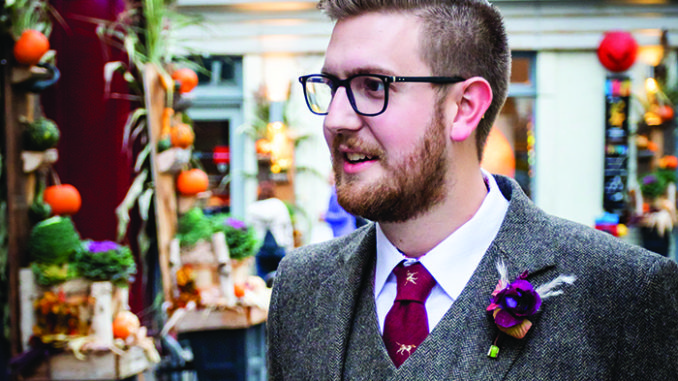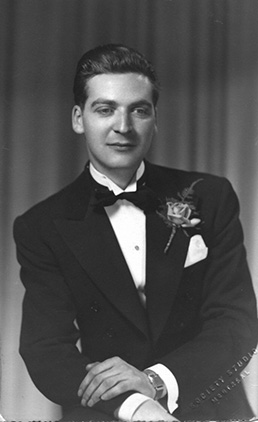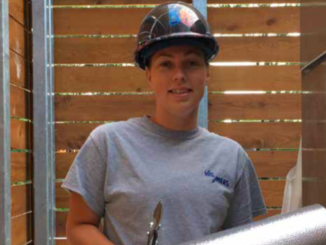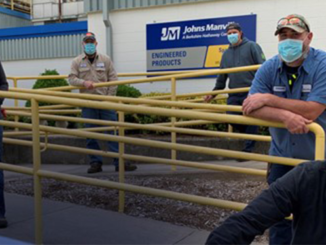
By / Natalie Bruckner
Innovation is not always born from dreams… it can also be born out of necessity.
When Pasquale (Pat) Mastromatteo, owner of Alberta-based Mastro Insulators, felt he wasn’t getting a fair shake from the insulation manufacturers, rather than sit around hoping the problem would fix itself, he launched the insulation company Insul Fibre. That was back in 1958.
“My grandfather also felt that he could be more competitive if he manufactured insulation for Mastro Insulators to install,” explains Nicholas Mastromatteo, Pat Mastromatteo’s grandson, who is now director of the company.

As chance would have it, Insul Fibre was a huge success. But times were changing quickly, as was the economy. Ever the innovator, Mastromatteo sought out other avenues for revenue, and in 1983 Insul Fibre stopped manufacturing and started operating as an open shop contractor opposite Mastro Insulators.
“This was largely due to the economic recession in Edmonton as a result of the oil market collapse,” explains Nicholas Mastromatteo. “Pasquale, along with his sons Larry, my uncle, and Chris, my father, found that as a union contractor they could not compete with the open shop contractors and shifted their business model to adapt to the changing economic situation.”
Two years later came a big turning point for the company when Larry and Chris took over ownership of Insul Fibre after purchasing Insul Fibre from Pasquale. Shortly thereafter, they won the contract for two of the company’s most important projects in its history. The first was the Yellowknife Hospital and the second was Saskatchewan Place in Saskatoon. It was a bumpy start for the sons, but what they learned helped them cement the reputation of the company.
“The Yellowknife Hospital project was one of the worst projects in Insul Fibre’s history,” says Nicholas Mastromatteo. “It did, however, allow Chris and Larry to learn a lot about the industry. Coming off the economic recession, margins were incredibly slim.”
Nicholas Mastromatteo explains that even from the start of the project it was obvious that it was not going to go well. “There was no co-ordination from the general contractor or from the mechanical contractor. The mechanical contractor had us insulate lines that were not tested, only for them to fail. As a result, the mechanical contractor had to remove insulation and Insul Fibre had to re-insulate many times, all on its own dime. To make matters worse, the general contractor also tried to turn the project over a year earlier than scheduled, only for the the owner to decline ownership until the scheduled date. Funds were being held up and issues just worsened.”
It was a hard lesson, but a necessary one. After completing work on the Yellowknife Hospital, Insul Fibre picked up work in Saskatoon with a project at Saskatchewan Pace. This would later be the best project in Insul Fibre’s history as it created a satellite office in Saskatoon, and later, allowed for operations to move from Edmonton to Saskatoon on a full-time basis. “It allowed Insul Fibre to develop many important relationship and lead to the ultimate success of Larry and Chris in the Saskatoon market for the last 35 years,” says Nicholas Mastromatteo.
Despite hearing about all the struggles in those early years, Nicholas Mastromatteo wasn’t deterred from entering the family business.
In 2016, after graduating from the University of Alberta Business School where he majored in finance and minored in accounting, Nicholas Mastromatteo started working for Insul Fibre alongside his brother Matt.
Today, as a third-generation owner of Insul Fibre, Nicholas Mastromatteo is incredibly proud of his family’s legacy, and also to be in an industry he adores. “I believe that this is one of the few trades that can really explode in the green era. I am confident that TIAC can leverage their position as the industry leaders of the green revolution. I think it’s going to take a lot of work and effort on the part of the board of TIAC, but I think the returns will be tenfold if they can really tap into market of being energy efficiency,” he says. ▪



